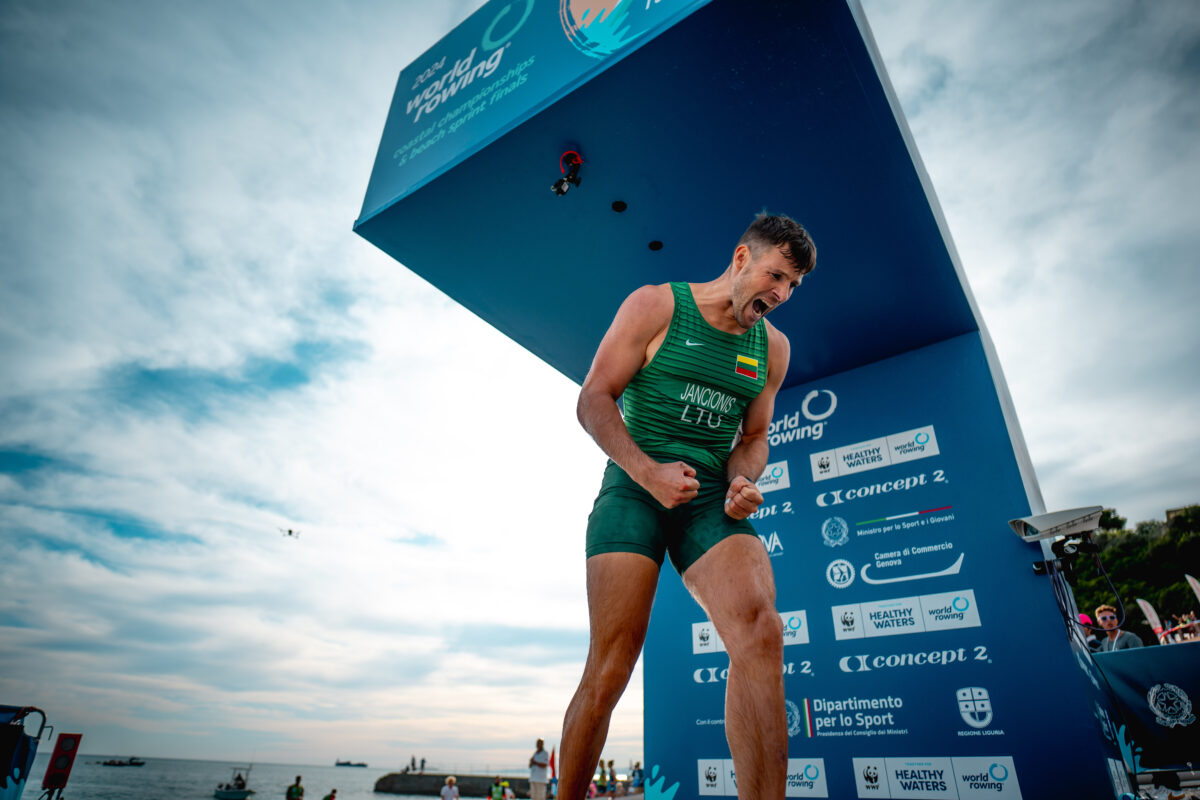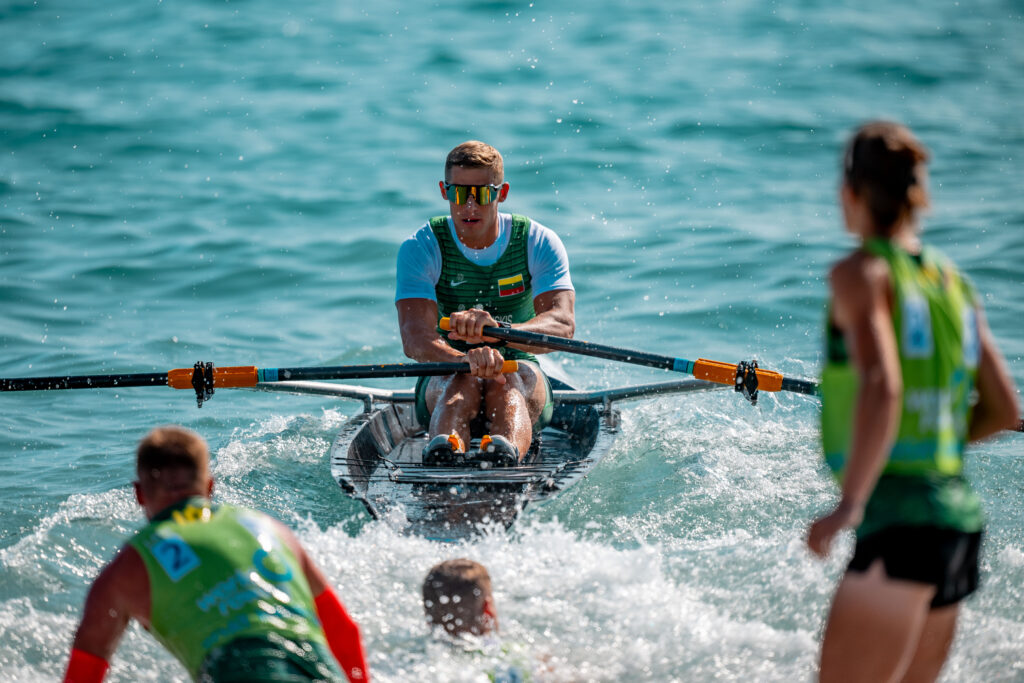
11 Oct 2024
Lithuania and the growth of Beach Sprint Rowing
Think of Lithuania and beaches are not the first thing that pops into your head. The nation does, nevertheless, possess a stretch of coastline on the Baltic Sea and popular sandy beaches include Palanga Beach, Beach of Nida and Sventoji. Lithuania’s centre for rowing, however, is tucked deep into the heartland of the country at Trakai, not far from the eastern capital of Vilnius.
This year Lithuania went to the World Rowing Beach Sprint Finals in Genoa, Italy, and walked away for the first time with medals.
General Secretary of the Lithuanian Rowing Federation and Olympic medallist Saulius Ritter is quick to point out that it’s not their first time entered at the World Rowing Beach Sprint Finals. They have also won bronze and gold at the European Rowing Beach Sprint Championships earlier this year in Gdansk, Poland.
In Italy, the medals came in the mixed double and the men’s solo. Zygimantas Galisanskis is a relative veteran of the discipline. He competed in the men’s solo at the 2021 and 2023 Beach Sprint Finals, where he finished fourth overall on both occasions. This year, he finally won a bronze medal, in a hard-fought battle in the Final B. Galisanskis is also a flat water national team member, first racing for Lithuania as a junior in 2010.

The mixed double was made up of Dominykas Jancionis and Martyna Kazlauskaite. Both are national team members in flat water rowing and Jancionis is a two-time Olympian. For the duo it was their first time racing at the World Rowing Beach Sprint Finals.
Ritter believes this year’s success comes from a combination of dedicated coaching and the commitment of the athletes. Head Coach Mykolas Masilionis is level 1 certified in World Rowing’s coastal rowing development programme and there’s a dedicated Beach Sprint coach, Vygantas Viršilas.
“There’s also, says Ritter, strategic investment in training facilities and seminars for coaches and umpires.”
“Participation is increasing,” says Ritter. At this year’s Baltic Beach Sprint event there were dozens of athletes involved, including competitors from Estonia and Latvia and last year they had guests from Pakistan. The Baltic Beach Sprint event is in its second year and takes place in Klaipėda, on the Baltic Sea.
Training takes place primarily in two locations: Klaipėda and Kaunas, where local rowing clubs provide access to specialised boats and facilities. Unlike Klaipėda, Kaunas is inland using a river as its rowing venue.
“Although the number of athletes is still small, we are actively working to make the discipline more attractive and accessible to a wider audience,” says Ritter.
The commitment is embedded with Ritter clearly a fan. At last year’s beach sprint event in Klaipėda, Ritter raced with his doubles partner, Olympic medallist Mindaugas Griškonis who is now the president of the Lithuanian Rowing Federation.
“It’s thrilling to see how quickly it has gained popularity, both in Lithuania and internationally,” says Ritter. And he’s predicting that as the sport grows we may see athletes specialising solely in beach sprints.

